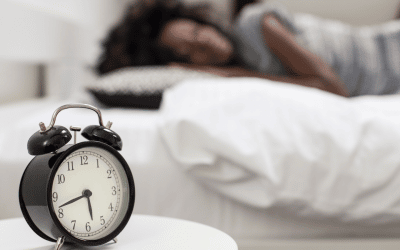Shoulder painShoulder pain is any pain felt around in and around the shoulder joint. The shoulder is the most mob More while sleeping is very common and can significantly impact your daily life. If the pain is severe enough to keep you awake, the knock-on effects can cause all of the same problems that you would associate with insomnia. Ironically, if the shoulder pain stops you from sleeping consistently night after night, this can lead to poor healing and more pain overall. Sleep is when our bodies repair damage and when most of the healing process occurs, so if you miss out on this vital time, then you can get stuck in a vicious cycle of more tissue damage, more pain and less sleep.
Shoulder pain while sleeping is unfortunately one of the most common complaints from anyone suffering shoulder problems. All of the common causes of shoulder pain can lead to pain at night, including shoulder impingement syndrome, rotator cuffThe rotator cuff is a group of muscles and tendons that attach the shoulder blade to the upper arm b More tears, tendinosis, and bursitis. Should pain while sleeping can even be down to your sleeping position. To make matters worse, you have very little control over your body and joint positions while you sleep, so it can be one of the hardest problems to treat.
What causes sore shoulders to hurt so much at night?
Most shoulder problems will come with some level of inflammation, stiffness and weakness, which are the main drivers of pain during the day. All of these problems are exacerbated at night. Inflammation increases when the joint is in a prolonged static position. Most people tend to sleep with their shoulder in an inwardly rotated position, which increases the pressure on irritated structures within the joint. Blood flow to the area is slightly reduced, thus making the soft tissues stiffer and therefore more painful. Furthermore, muscle activation reduces at night, which means if there is underlying weakness already present, then the level of support around the joint will decrease even further.
So how can you reduce the night pain and finally get some much-needed rest? Unfortunately, since we have very little control over these causes of increased night pain, it’s very difficult to tackle night pain in isolation. You need to treat the root cause of the pain during the day, so that the body can heal the damaged structures and calm down inflammation levels.
Shoulder pain assessment
Getting your shoulder pain assessed by a qualified physiotherapist can be the best way to start the recovery process. Your physio will be able to identify the cause of pain and provide an individualised treatment plan. RehabilitationRehabilitation is the process of helping a person regain strength and function after an injury. This More typically starts with stretches and range of motion exercises to alleviate stiffness and lack of movement. Once you start to get some movement back in your shoulder, your physio will guide you through some strengthening exercises to tackle any weakness in the joint. Weakness in the muscles surrounding the joint causes strain on the joint, ligaments and tendons, which then causes inflammation and pain. By improving the strength and muscular function, you will be able to off load the irritated structures, thus allowing the body to heal.
Once the shoulder is functioning better during the day, night pain will naturally settle.
In the meantime, while you work on improving your shoulder health during the day, here are a few tips to help control pain while sleeping:
- Avoid sleeping on the affected side. Try sleeping on the other side or your back. If you find yourself waking up on the sore shoulder, try putting pillows next to that shoulder to stop you from rolling onto it.
- Use pillows for support. Try lying on your back and putting a pillow under the shoulder to off-load the joint. Alternatively, lay on the unaffected side and prop your sore arm on a couple of pillows so that it will rest in a neutral position.
- Know your limits. Avoid overdoing things during the day so that you do not further irritate the joint and increase inflammation levels.
- Use heat or ice. While hot or cold won’t ultimately get the pain better, they can provide good temporary relief to help you get some rest.
- Commit to your rehab plan! The exercises your physio has given you have more benefits than just strength and flexibility gains. The act of doing the exercises increases cellular activity in the area, which in turn increases blood flow to the area, promotes the healing process, and even encourages the body to release our natural opioid substance that reduce pain.
The most important thing is that you don’t just suffer! The vast majority of shoulder pain can be treated. Seek help as soon as possible so you can kick start your recovery and get back to sleep.


